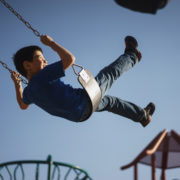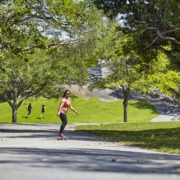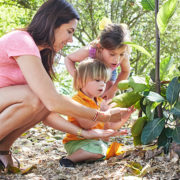Keep Kids on Track during after school hours with Miami-Dade Parks Fit2Play™
It’s 3 p.m. The school bell rings. Now what?
For a majority of the nation’s youth, the hours from the time school lets out to the moment families are reunited are becoming a period of loneliness and boredom. The U.S. Department of Justice, Office of Justice Programs, points out that juvenile violence peaks in the after school hours on school days and in the evenings on non-school days.
Findings from the Harvard Family Research Project indicate that after school programs not only help prevent risky behavior, but also show academic achievement, social and emotional development and improvement in overall health and wellness in participants.
So where can you find safe, supervised and structured after school programs? At a Miami-Dade park!
The Miami-Dade County Parks, Recreation and Open Space Department invites parents to enroll their kids in one of two specialized programs. The “Fit2Play™: Health, Wellness, and Physical Activity” after-school program, for ages 6-14, is nationally-acclaimed and designed to help children discover the “fun” in fitness and develop healthy habits for a lifetime. Kids will stay fit with fully-supervised activities focused on fitness, nutrition, and wellness, and developing their appreciation of nature, science, and the cultural arts.
Fit2Play™ will be held Monday – Friday, 2 – 6 p.m., August 21, 2017 through June 8, 2018, throughout the school year and school vacation breaks, at 25 Miami-Dade park locations.
Program fees range from $25-$35 per week. Financial assistance may be available to qualifying families based on the availability of funds. Miami-Dade County Parks also offers transportation from select schools to park sites, for an additional charge, making the program all the more convenient for parents.
Returning for a second season is Miami-Dade Parks’ “Fit2Lead Youth Enrichment & Sports (Y.E.S.)” program, for ages 12-14. The program is presented in collaboration with the Department of Juvenile Services and local universities. Its aim is to empower youth through sports and recreation – where they will learn life and leadership skills through personal, academic, career, and citizenship enrichment activities.
Fit2Lead Y.E.S. is offered free of charge during the regular school calendar year, Monday – Friday, 4 – 7 p.m., at 10 county parks. Transportation from the student’s school to the park may be available, depending on the location.
Make the most out of your child’s after school time, register today!




